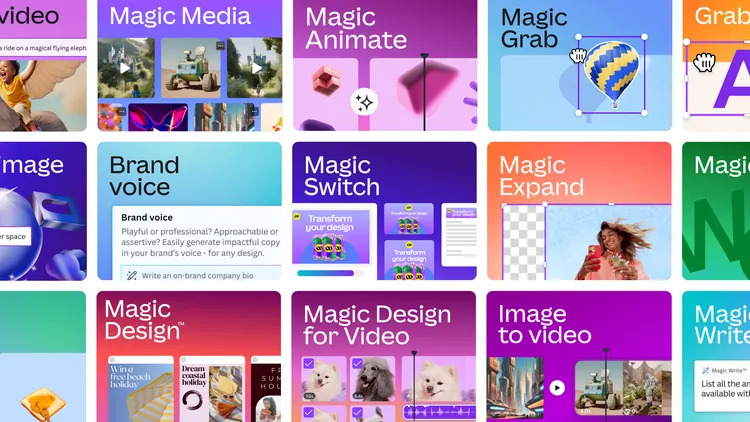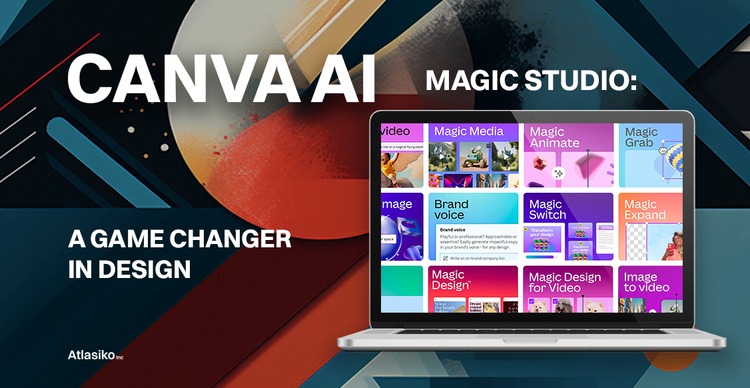As part of its 10th birthday festivities, Canva, the web-based design platform, has unveiled "Magic Studio," a groundbreaking suite of AI-driven design tools. Magic Studio is poised to democratize content creation by catering to both novices and experienced designers. Billed as the "world's most comprehensive AI-design platform" for individuals and organizations, this suite introduces a range of tools designed to automate labor-intensive tasks, such as converting designs into different media formats and editing images through generative AI.
One of the standout features is "Magic Switch," which empowers users to instantly transform an existing design into another format, be it converting a blog post into an email or social media content, all without the need for manual adjustments. Moreover, this feature seamlessly translates designs into over 100 languages, streamlining multichannel campaign creation and freeing up designers to focus on more complex tasks.
Canva AI tool has also bolstered its "Magic Media" tool with a new text-to-video capability, powered by Runway AI. Users can now generate short videos from text prompts or existing images, with the flexibility to use these videos within the platform or export them as MP4s or GIFs for other projects. The Canva AI text-to-image feature within Magic Media has also received significant updates, offering a plethora of style options.
In an exciting development, Canva is expanding its app marketplace to include OpenAI's DALL-E and Google's Imagen, offering users a broader spectrum of AI image generation options.
The release also brings a host of photo editing tools to the table, such as "Magic Grab," which intelligently selects and isolates subjects within an image for editing, resizing, or repositioning, and "Magic Expand," which extends an image beyond its frame, akin to Adobe's Generative Expand tool for Photoshop. For a comprehensive list of the new tools featured in Magic Studio, you can refer to Canva's website.

In tandem with the AI suite's launch, Canva AI generator is introducing "Canva Shield," a set of robust safety, privacy, and security controls designed to prevent the misuse of AI in generating unsafe or inappropriate content. Canva Shield includes AI indemnification for enterprise customers and grants administrators full control over the deployment of Magic Studio products within their workplace.
Lastly, Canva has announced a significant initiative to compensate designers. Over the next three years, the company will allocate $200 million to designers who consent to the use of their content for training Canva's AI models. Participants in the "Creator Compensation Program" will receive an initial bonus, followed by monthly payments based on factors like content contribution and usage frequency.
While the AI Canva generator hasn't clarified whether users will be automatically opted in or out, co-founder and CPO Cameron Adams highlighted the company's commitment to transparency and providing an upfront opt-out option. This initiative mirrors Adobe's recent compensation program for Adobe Stock contributors, aiming to address concerns among creatives regarding AI profiting from their work.
With the introduction of Magic Studio, Canva AI strengthened its position as a formidable rival to industry stalwarts like Adobe. Currently boasting 16 million paying subscribers and over 150 million users worldwide, Canva's approachable design platform continues to gain popularity. Adobe, with its web-based design app Adobe Express, has incorporated various AI features but may need to further innovate to keep pace with Canva's ascent in the industry.







